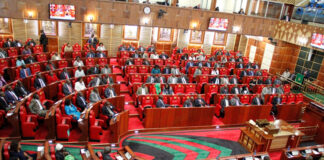Discussions are underway between Kenya’s National Treasury and flower industry stakeholders to review export taxes and harmonize existing levies, amid concerns over declining earnings and reduced competitiveness in the global market.
Christine Chesaro, Director of the Horticultural Crops Directorate, highlighted that the standard $10 fee per consignment imposed on horticultural exporters in mid-2023 is disproportionately affecting small-scale exporters, making Kenyan flowers more expensive internationally.
Kenya’s cut flower export earnings fell by 2% in 2024 to Ksh 72 billion. Industry players partly attribute the drop to increased taxation within the sector.
The Kenya Trade Network Agency (KENTRADE), which introduced the tax, is currently reviewing it, with exporters advocating for a shift to quantity-based taxation to better reflect actual volumes.
Additionally, the Kenya Flower Council is urging the government to harmonize the more than 50 different taxes and levies currently imposed on flower farms and traders, which they say stifle growth and investment.
To boost the quality and competitiveness of Kenyan flowers, breeders and growers will begin receiving royalties for newly engineered crop varieties, an initiative aimed at expanding Kenya’s share in the global cut flower market.
In another move to improve export efficiency, the Kenya Plant Health Inspectorate Service (KEPHIS) is set to roll out an electronic phytosanitary certification system. This will enhance traceability and reduce the interception of consignments in key markets.
These developments come ahead of the 12th International Flower Trade Exhibition, scheduled for May 31st, where stakeholders are expected to discuss the industry’s future in greater depth.
Written By Rodney Mbua



















